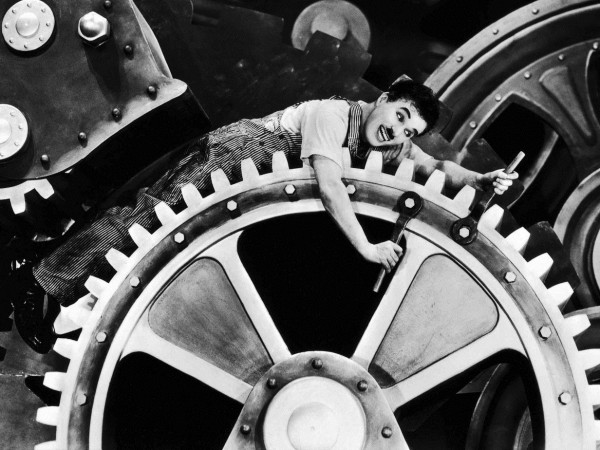Laurie Penny, who’s written some of my favorite articles this year, has published a piece at Wired in which she wonders about automation devastating traditionally male employment. The three key questions about robotic hands taking control of our work remain the same: 1) How many positions will be automated out of existence, 2) Will said transition, if it occurs, happen quickly or gradually?, and 3) Will many automation-proof positions be created to offset the losses? Numerous studies, including one that author quotes, claim to know how many jobs will disappear over the next several decades, though it seems fairly impossible to predict with any accuracy.
I do feel optimistic about men’s capacity to change from labor to nurture because of a trend I’ve noticed: Many retired police officers and firefighters have kept busy by beginning second careers in nursing and home healthcare. I don’t know how widespread this phenomenon is, but I’ve seen it repeatedly in the last decade while visiting relatives in hospitals and senior centers. Some of this work won’t pay the bills for those who go directly into the sector, but if technology forces us to reinvent masculinity, it would be a very welcome and long overdue turn of events.
An excerpt:
ROBOTS ARE COMING for our jobs—but not all of our jobs. They’re coming, in ever increasing numbers, for a certain kind of work. For farm and factory labor. For construction. For haulage. In other words, blue-collar jobs traditionally done by men.
This is why automation is so much more than an economic problem. It is a cultural problem, an identity problem, and—critically—a gender problem. Millions of men around the world are staring into the lacquered teeth of obsolescence, terrified of losing not only their security but also their source of meaning and dignity in a world that tells them that if they’re not rich, they’d better be doing something quintessentially manly for money. Otherwise they’re about as much use as a wooden coach-and-four on the freeway.
There’s hope for mankind, but it’ll be a hard sell. The way we respond to automation will depend very much on what we decide it means to be a man, or a woman, in the awkward adolescence of the 21st century.
Some political rhetoric blames outsourcing and immigration for the decline in “men’s work,” but automation is a greater threat to these kinds of jobs—and technological progress cannot be stopped at any border. A recent Oxford study predicted that 70 percent of US construction jobs will disappear in the coming decades; 97 percent of those jobs are held by men, and so are 95 percent of the 3.5 million transport and trucking jobs that robots are presently eyeing. That’s scary, and it’s one reason so many men are expressing their anger and anxiety at home, in the streets, and at the polls.
While all of this is going on, though, there’s a counterphenomenon playing out. As society panics about bricklaying worker droids and self-driving 18-wheelers, jobs traditionally performed by women—in the so-called pink-collar industries, as well as unpaid labor—are still relatively safe, and some are even on the rise. These include childcare. And service. And nursing, which the US Bureau of Labor Statistics predicts will need a million-plus more workers in the next decade.•
Tags: Laurie Penny


